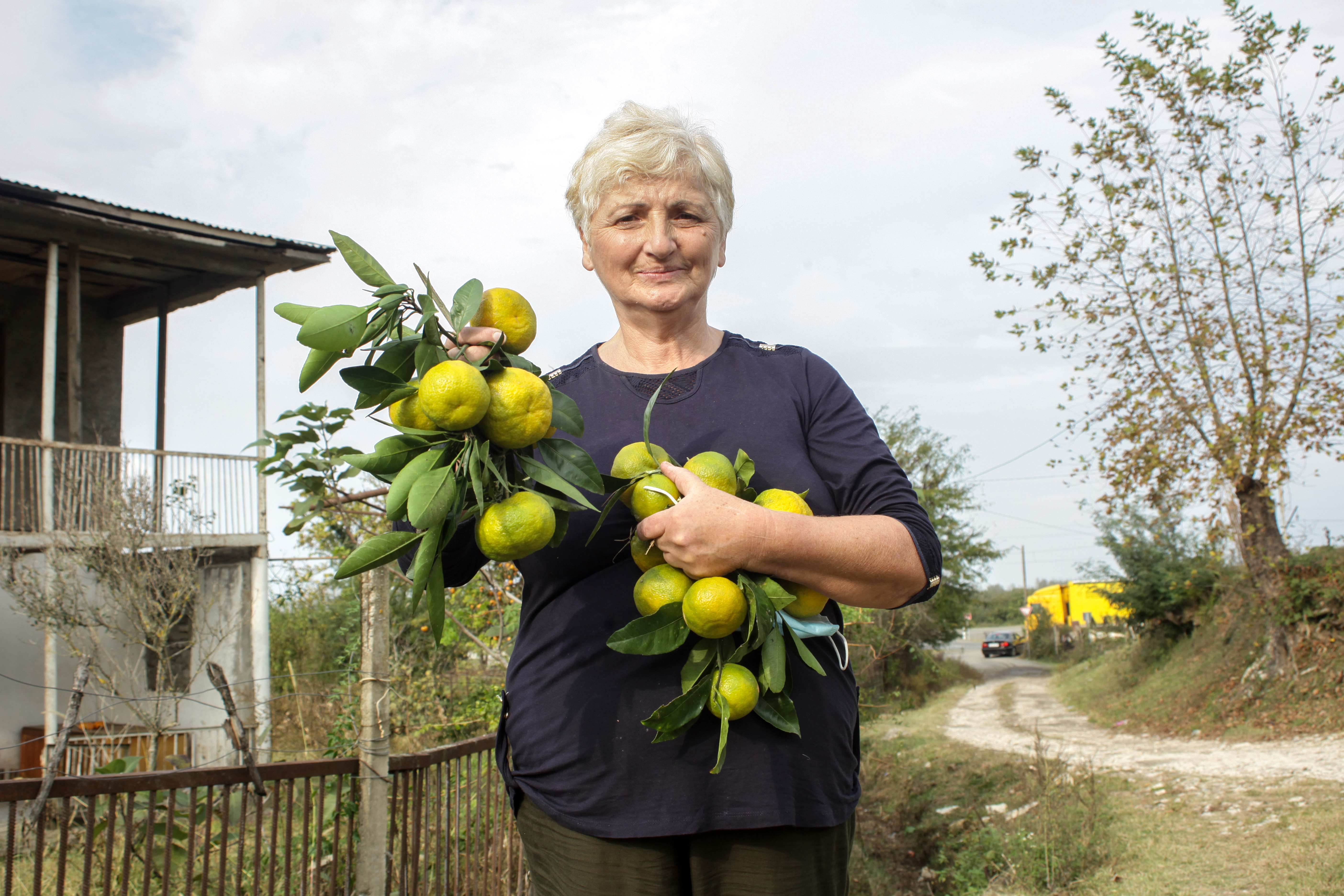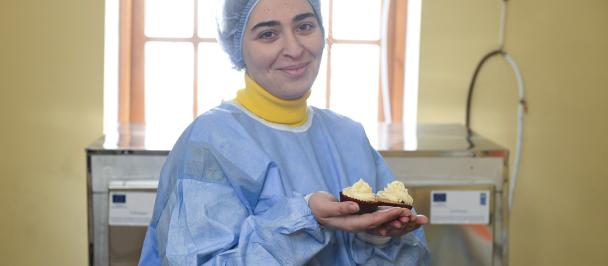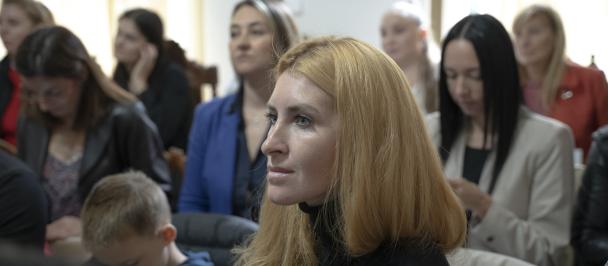480 women farmers receive assistance from UNDP to improve yields and boost their incomes during the pandemic
Pandemic coping strategies for women farmers in rural Georgia
November 23, 2020
Photo: Nino Zedginidze/UNDP
In subtropical parts of western Georgia, tangerines, lemons, kiwis and hazelnuts grow in nearly every backyard. It’s November and Dina’s mandarins are ready to be picked. She hopes the harvest will be good, as this year her family of four will be relying on home-grown food to make it through the winter.
As the coronavirus numbers continue to climb and restrictions on public gatherings remain in force, many workers, especially women holding informal or part-time jobs, are seeing wage income dry up in cities and towns. With winter coming on, their households are struggling to make ends meet. In a context in which most families have roots in the village, turning to agriculture has become a key coping strategy.
“My family is in a particularly difficult situation, as our only child is disabled and needs constant care,” says Dina. “This limits our possibilities of work for income and with the pandemic-related restrictions, our mobility has been limited even more. It means that our family relies mostly on food that we can produce ourselves,” she explains.
Dina is one of 480 women farmers receiving assistance from UNDP to improve yields and boost their incomes during the pandemic. Working in partnership with the Association of Women Farmers, UNDP distributed packages of fertilizer, pesticide and farm tools to women heading vulnerable households—families with many children, single parents, internally displaced persons, families living in poverty, national minorities—in seven regions of Georgia. The total value of the assistance was USD 69,000.
Nona, a mother of four, stresses that the pandemic has made life particularly difficult for families with kids. “Our family is quite big. We have four children and our parents also live with us – altogether eight people. With schools and kindergartens closed, the burden of housework and providing for the family is falling hard on us and putting food on the table became a challenge,” says Nona.
The pandemic is expected to push the country into recession, with GDP forecast to drop by five percent in 2020. Severe job and income losses and a 2.8-percentage-point increase in poverty are anticipated.
Even before the pandemic, Georgia’s agriculture sector was still wrestling with the consequences of an infestation by the brown marmorated stink bug, a crop-eating insect that destroyed much of the hazelnut harvest in western Georgia two years ago and continues to pose a threat. This is why the packages provided by UNDP include equipment and materials to prevent the stinkbug's spread.
“Making a living from agriculture in Georgia is a challenging prospect in the best of times,” said UNDP Head Louisa Vinton. “The pandemic has not made it any easier, but for many families farming currently offers a more promising source of income than other sectors, where COVID-19 has undercut employment, especially for women. Our aim is to ensure that the poorest rural households stand a chance in this effort.”
The aid is part of a USD 1 million joint programme funded by the UN COVID-19 Response and Recovery Fund. Implemented by UNDP, UNICEF and the UN Population Agency, the programme is designed to support national and municipal authorities and local communities in addressing the pandemic emergency. Alongside vulnerable rural families, healthcare workers and shelters for homeless and elderly people are also receiving support. UNDP’s work is managed through a Danish-funded local development programme.

 Locations
Locations





